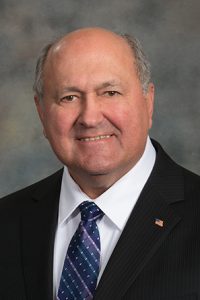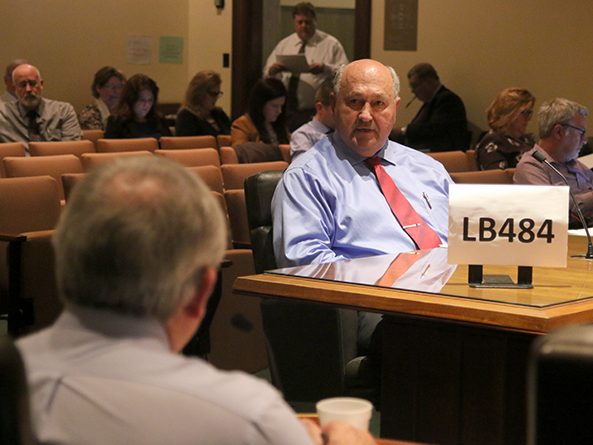Commission proposed to review school financing
A new commission would be tasked with conducting an in-depth review of how Nebraska funds public schools under a bill heard by the Education Committee March 6.

LB484, introduced by Omaha Sen. Rick Kolowski, would create the School Financing Review Commission to examine the option of using income and sales taxes to fund public schools and to examine school financing methods used in other states to avoid an overreliance on property taxes. The commission also would explore options for funding pre-kindergarten services and college- and career-readiness programs.
The commission would submit a progress report to the Legislature by Dec. 31, 2017. A final report with recommendations would be due Dec. 1, 2018, to the governor, the State Board of Education and the Legislature.
Kolowski said a commission is needed to help the Legislature make difficult changes to the complex formula that distributes more than $1 billion per year to the state’s public schools.
“We have heard from taxpayers and educators that we need to explore a new way to fund our schools,” he said. “The formula is not equitable to property taxpayers and does not ensure that all of our students get the high-quality education that they deserve.”
The commission’s 20 members, including three senators, one representative of the governor, the state property tax administrator and school representatives, would be appointed by the commissioner for education.
On or before July 1 of each even-numbered year beginning in 2020, the commission would report on the adequacy of school funding sources.
The Legislature would appropriate at least $100,000 to the commission to carry out its duties.
Larry Scherer of the Nebraska State Education Association testified in support of the bill, saying that it would be the first step on the path to a better school funding system. He said the proposed commission should look for ways to balance state funding with local funding, particularly property taxes. Input and support from businesses and the agriculture community would be critical to the commission’s work, Scherer added.
“It’s time to go back to the beginning and reinvent something that works for our state — something that works for our schools,” he said.
Renee Fry of the OpenSky Policy Institute also testified in support of the bill, saying the commission would be the best way to address the state’s overreliance on property taxes to fund public education. She said valuations on agricultural land have increased more than 230 percent since 2007, compared to 31 percent for commercial property and 19 percent for residential. This increase in resources led to a decrease in the number of rural districts receiving state equalization aid, from 81 percent in 2009 to 31 percent this year.
At the same time, Fry said, urban districts face growing enrollment and increasing numbers of students in poverty. State aid is not as predictable or stable as property tax revenue, making it difficult for those schools to create budgets, she said.
“Our K-12 funding formula in Nebraska is complex and more than a quarter of a century old,” Fry said. “While tweaks have been made along the way, the level of frustration about the formula from both urban and rural districts signifies that it is time for a new formula.”
No one testified in opposition to the bill and the committee took no immediate action on it.


